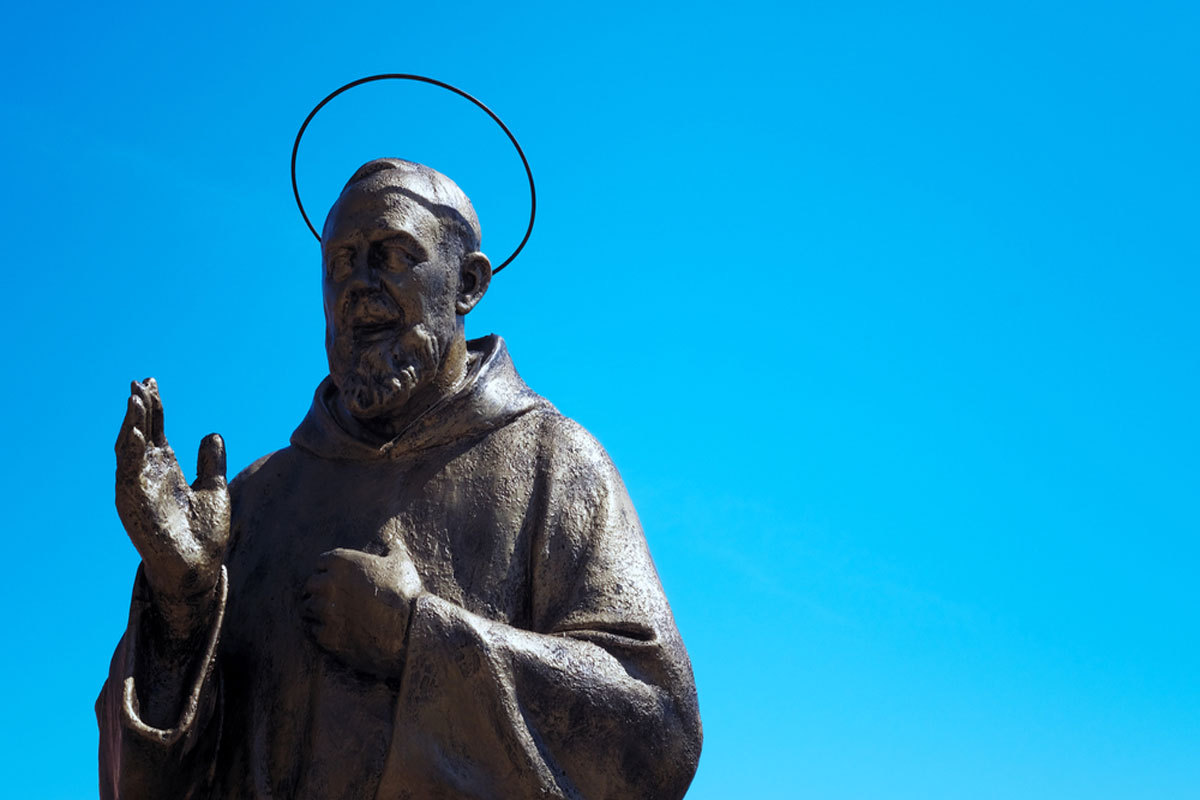Padre Pio, born Francesco Forgione in 1887 in Pietrelcina, Italy, became one of the most beloved and revered figures in modern Catholicism. Known for his deep piety, extraordinary spiritual gifts, and unwavering commitment to God, he was canonized as a saint by the Catholic Church in 2002. Among the many virtues that Padre Pio exemplified, the virtue of fortitude stands out as a defining characteristic of his life and ministry. Fortitude, one of the four cardinal virtues, is the moral strength to endure suffering, overcome fear, and remain steadfast in the pursuit of good, even in the face of severe trials. In Padre Pio’s life, this virtue was manifested in his unwavering faith, his endurance of physical and spiritual suffering, and his courageous dedication to the spiritual welfare of others.
The Meaning of Fortitude in the Christian Tradition
In Christian theology, fortitude is more than just courage; it is a divine gift that empowers believers to persevere in the face of adversity. It is the strength to endure trials with patience and to confront challenges with steadfastness, all while maintaining faith in God’s providence. Fortitude is often seen as essential for achieving moral excellence, as it enables individuals to pursue the good despite obstacles and fears. For Christians, this virtue is rooted in the example of Christ, who endured the ultimate suffering on the cross for the sake of humanity’s salvation. Similarly, the lives of saints often exemplify this virtue, as they face persecution, temptation, and suffering with unwavering faith.
Padre Pio’s Early Life and the Foundation of His Fortitude
Padre Pio’s life was marked by trials from an early age. Born into a humble and devout family, he experienced poverty and hardship during his childhood. Despite these challenges, his deep faith and early experiences of spiritual visions set the foundation for his future ministry. At the age of 15, he entered the Capuchin Friars, a branch of the Franciscan Order, and began his religious training. Even in these early years, Padre Pio exhibited an extraordinary level of fortitude. He endured physical illnesses and spiritual struggles with remarkable patience, always trusting in God’s plan for his life.
His path to ordination was fraught with difficulties. Chronic health issues plagued him, leading to extended periods of illness that disrupted his studies and isolated him from his fellow friars. However, Padre Pio’s determination to fulfill his calling never wavered. He saw these trials as opportunities to grow in virtue and to unite his sufferings with those of Christ. His perseverance paid off, and in 1910, at the age of 23, he was ordained a priest.
Physical Sufferings and Spiritual Trials
Perhaps one of the most striking aspects of Padre Pio’s life was the intense physical and spiritual suffering he endured, which became a significant part of his ministry and his path to sainthood. In 1918, Padre Pio received the stigmata—the visible wounds of Christ—on his hands, feet, and side. This extraordinary phenomenon, which he bore for 50 years until shortly before his death, was both a source of deep spiritual connection to Christ’s Passion and a cause of immense physical pain.
The stigmata brought Padre Pio a great deal of attention, but also suspicion and scrutiny. Church authorities and medical professionals examined him repeatedly, some questioning the authenticity of his wounds. Despite the doubts and accusations, Padre Pio remained steadfast. His fortitude was evident in how he bore these wounds with humility, never seeking attention or sympathy, but instead offering his sufferings for the salvation of souls and the conversion of sinners.
In addition to his physical suffering, Padre Pio experienced profound spiritual trials, often referred to as “the dark night of the soul.” He faced intense periods of spiritual desolation, where he felt abandoned by God and tormented by doubts and temptations. These experiences, however, only deepened his reliance on God’s grace. Padre Pio’s response to these trials was not despair, but a deeper commitment to prayer, penance, and the sacraments. His fortitude shone through in his ability to trust in God’s presence and goodness, even when he felt most alone and afflicted.
Fortitude in Ministry: Spiritual Direction and the Confessional
Padre Pio’s fortitude was not only manifested in how he endured personal suffering but also in how he ministered to others. He spent long hours in the confessional, often up to 15 or 16 hours a day, hearing the confessions of thousands of people who traveled from all over the world to seek his spiritual guidance. This ministry was exhausting, both physically and spiritually, yet Padre Pio approached it with unwavering dedication.
The confessional was a place where Padre Pio’s fortitude was most evident. He had the gift of reading souls, which meant that he could see the state of a penitent’s soul and guide them accordingly. This often involved confronting them with uncomfortable truths about their sins, but always with the intention of leading them toward repentance and reconciliation with God. His courage in this ministry was not about being confrontational but about being unafraid to speak the truth in love, even when it was difficult. This required not only spiritual discernment but also the fortitude to face the emotional and spiritual burden of helping others carry their crosses.
Padre Pio’s ministry extended beyond the confessional. He was also known for his spiritual direction, providing counsel to those who sought his guidance through letters and personal meetings. Many people, including clergy and religious, considered him their spiritual father. He guided them with wisdom, compassion, and a deep understanding of the spiritual life, always encouraging them to persevere in faith, especially in the face of trials.
The Legacy of Padre Pio’s Fortitude
Padre Pio’s life is a testament to the power of fortitude in the Christian journey. His unwavering faith, despite the immense physical and spiritual sufferings he endured, serves as an example of how one can remain steadfast in the pursuit of holiness, even in the most challenging circumstances. Padre Pio’s fortitude was not an innate quality but a grace that he cultivated through prayer, sacrifice, and a deep union with God.
His legacy continues to inspire countless people around the world. Devotees of Padre Pio often turn to him in times of suffering, seeking his intercession for the strength to endure their own trials with courage and faith. The numerous miracles attributed to his intercession, both during his lifetime and after his death, are seen as signs of his continued presence and support for those who struggle.
The Church honors Padre Pio not only as a saint but as a model of how to live out the Christian virtue of fortitude. His life reminds us that true courage is not the absence of fear or suffering, but the willingness to face these challenges with trust in God’s providence. In a world that often seeks to avoid pain and difficulty, Padre Pio’s example calls us to embrace our crosses with faith, knowing that through them, we can grow closer to Christ and participate in His redemptive work.
A Model for All
Padre Pio’s virtue of fortitude is a beacon of hope for all who face trials, whether physical, emotional, or spiritual. His life shows that it is possible to endure great suffering with dignity and grace, and that such endurance is a powerful witness to the transformative power of God’s love. As we reflect on Padre Pio’s life, we are reminded that fortitude is not merely a human achievement but a divine gift, one that enables us to overcome our fears, remain faithful in adversity, and continue on the path to holiness.
In a world filled with challenges, Padre Pio’s example of fortitude encourages us to face our own trials with the same unwavering faith and courage, trusting that God will provide the strength we need to endure and to grow in love and virtue. His life is a powerful reminder that with God’s grace, we too can endure our crosses and emerge stronger in faith, just as Padre Pio did throughout his extraordinary life.



